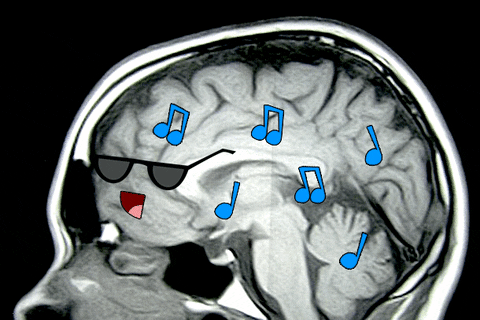Musicians, regardless of innate pitch ability, have more connected brains than non-musicians: new study.
A new study, published in the Journal of Neuroscience, suggests that long-term musical training is associated with robust changes in large-scale brain networks.

The following written content via Sci News
Professional musicians are a popular model for investigating experience-dependent plasticity in human large-scale brain networks.
A minority of musicians — with Mozart and Michael Jackson in their ranks — possess absolute pitch, the ability to name a tone without reference. But, it remains unclear how this ability impacts the brain.
In the new research, Dr. Simon Leipold of Stanford University and colleagues compared the brains of professional musicians to non-musicians.

The study involved 153 female and male human participants: 52 absolute pitch musicians, 51 non-absolute pitch musicians, and 50 non-musicians.
To the team’s surprise, there were no strong differences between the brains of musicians with and without absolute pitch ability; instead absolute pitch may shape the brain in more subtle ways.
Compared to non-musicians, both types of musicians had stronger functional connectivity — the synchronized activity of brain regions — in the auditory regions of both brain hemispheres.
Musicians also had stronger white matter connections between auditory regions and lobes involved in various types of high-level processing.
Musicians that began their training at a younger age had stronger structural connections than musicians with a later start.
These results demonstrate how experience shapes the brain, especially early in life, and how enhanced musical skills are represented in our brain.
“We identified robust and replicable effects of musical expertise on intrinsic functional and structural brain networks,” the researchers said. Read more from Sci News.





